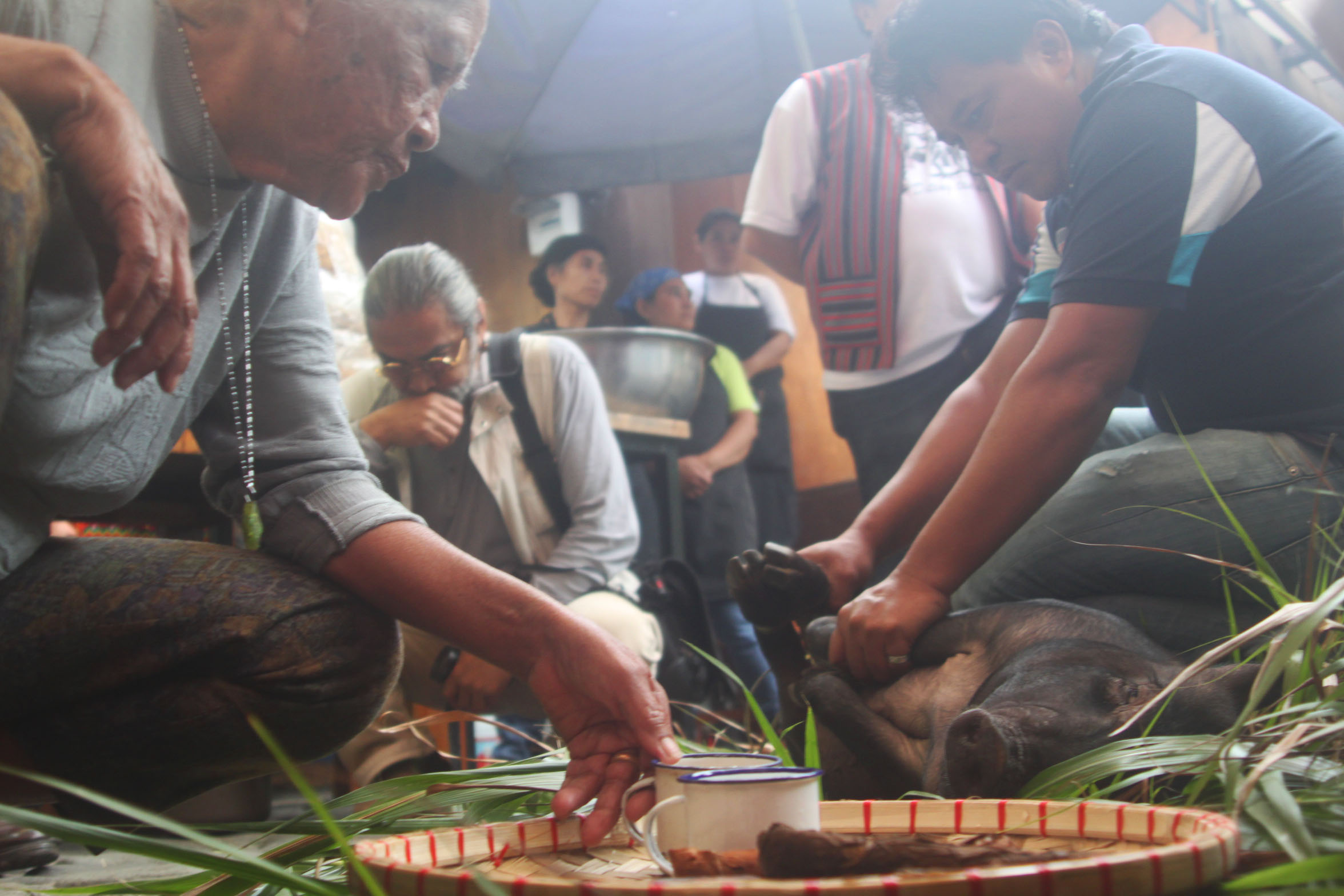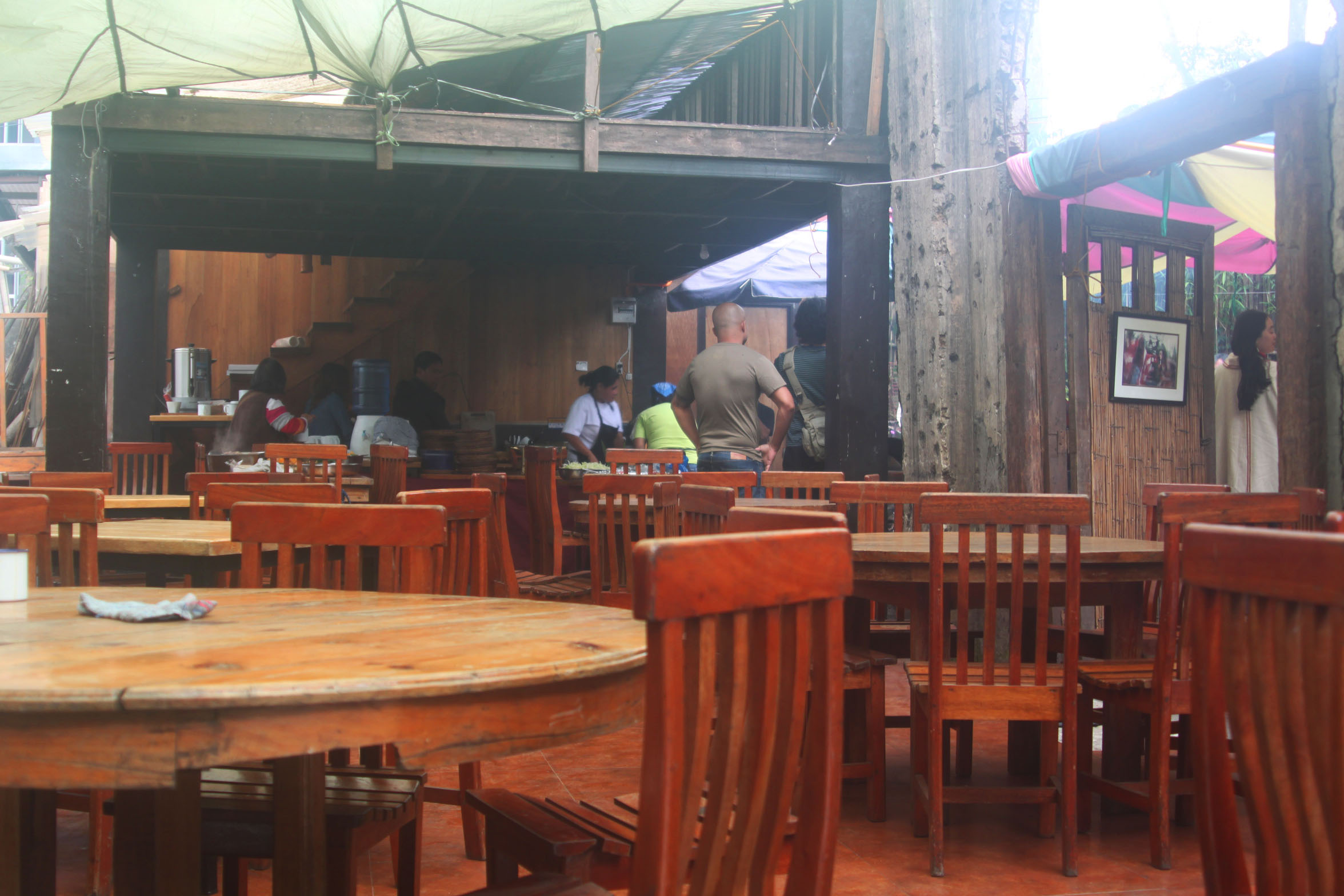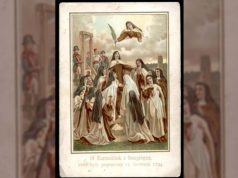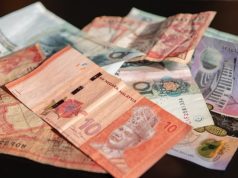
BAGUIO CITY—Tagged as Baguio’s most beloved restaurant, Café by the Ruins will no longer resume its operations in its original location at Chuntug Street, just below the Baguio City Hall. This was announced by its partners-owners during the final cañao (a Cordillera community gathering or feast accompanied by appropriate rituals depending on the occasion). The ceremony was officiated by a mambunong (an Igorot priest or ritual facilitator).

In their press release, the owners shared that for the past 29 years, the historic establishment served as the focal point of an artful venue with a “wide-reaching menu.” The owners noted that the café fostered the Baguio Arts Guild, sponsored events like the Fiber Web Festival, published cookbooks, and encouraged poetry readings and other literary activities.
Café by the Ruins was a popular destination for both local and foreign tourists. Inspired by traditional Cordillera cuisine, the dishes used local and naturally grown ingredients.

Fondly referred to as the Café, patrons will surely miss bestsellers like Pinikpikan (traditional Cordillera chicken recipe); bagnet, an Ilocano version of lechon-kawali; suman and tsokolate (sticky rice paired with a cup of hot native chocolate drink); fresh lumpia or spring roll using mountain-fresh vegetables; kamote bread, an original creation available only at the Café; and tapuy (Cordillera rice wine).
The Café was originally where Baguio’s first Garden Theater originally stood. The theater was constructed by the Americans in 1912. In 1920, the theater was remodeled and served as a residence for an American businessman for a short period before it was damaged by the American carpet bombing of Baguio City in 1945.
After the bombing, the once cozy house was reduced to four reinforced concrete arches.
In 1988, Café by the Ruins was opened by nine Baguio artists. The group registered a company with the Securities and Exchange Commission (SEC) to run the Café, the company was named as Ruins, Inc.
Finding a new home
Before noon of April 30 this year, the cogon roof of the Café caught fire. The roof and the second floor of the Café were partially destroyed after an hour of fire. On a sad note, the Café just celebrated its 29th anniversary a month before the fire incident.
Fans of the Café by the Ruins, however, may look forward to savoring their favorite dishes and soaking up its artsy atmosphere again as the owners also noted that they intend to establish a new restaurant in another location.
“Today, this chapter in the ledger of Café by the Ruins closes. The company will open its next enterprise at another environment,” stated the owners.










